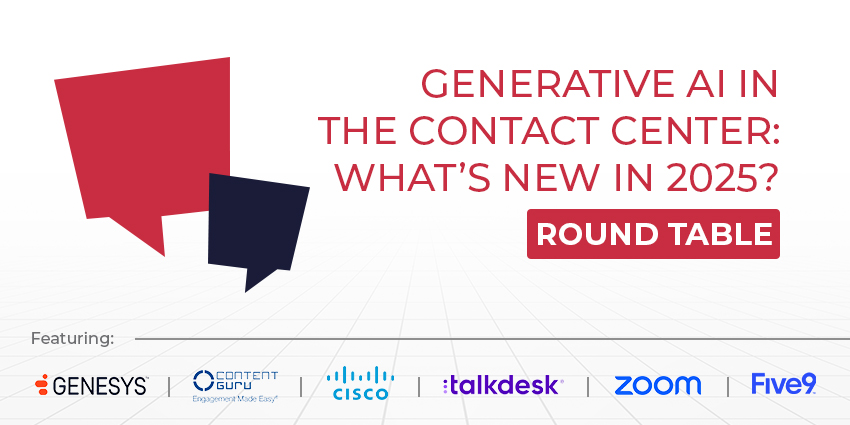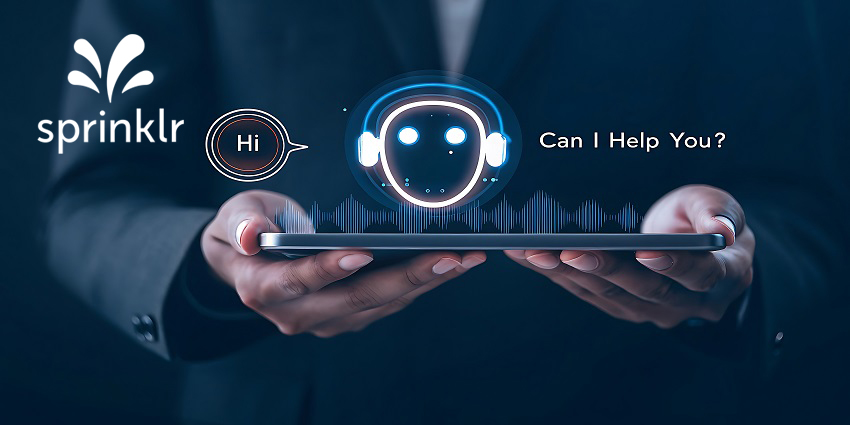Contact centers have gone a long way from being hubs for information and complaint resolution to becoming crucial in shaping customer experiences, gathering insights, and driving customer loyalty.
Modern contact centers are goldmines of customer insights, informing meaningful business decisions, and the advent of Artificial Intelligence (AI) has been significantly improving their operational efficiency. Other factors speeding up the evolution of the contact centre are hybrid work and a larger emphasis on security and compliance.
In my recent chat with Hannah Milborrow, Chief Product & Technology Officer at customer service technology provider Local Measure, we discussed the evolving role of the contact centre and explored current and upcoming changes.
Here are the main contact centre trends you need to look out for in 2024!
AI-Driven Trends
AI is significantly transforming traditional contact centre operations.
“Chatbots, voice bots, and self-service options can now handle routine tasks like ticket categorization, responding to common queries, and managing customer data,” Milborrow notes.
“This speeds up response times and allows human agents to concentrate on more complex and value-added interactions, ultimately increasing overall operational efficiency.”
So, what are the roles of AI in modern contact centres? Let’s break it down.
- Personalization at Scale: With the integration of AI and machine learning, contact centers can now offer personalized experiences to customers at scale.
“This includes tailored recommendations, proactive service based on customer history, and more relevant interactions,” Milborrow says. Such personalization efforts can significantly enhance customer satisfaction and loyalty.
- Agent Assist Tools: AI-driven tools provide real-time assistance to agents by offering them quick access to information, suggesting responses based on customer interaction history, and guiding them through complex processes.
“This not only improves the agent experience by reducing stress and cognitive load but also enhances the quality of customer service,” Milborrow explains.
- Self-Service and Minimal Wait Times: Customers are no longer held hostage by slow response wait times, with self-service and asynchronous messaging putting more power and control in the hands of end customers.
“This will require Contact centre managers to change how they measure and manage bot-agents, rather than traditional human agents,” Milborrow notes.
Analytics, Security, and Compliance
Some other important areas where the contact centre is changing have to do with the advanced use of analytics along with changed work methods, strongly tied to stricter standards regarding security and compliance.
- Advanced Analytics: Advanced analytics capabilities now embedded in contact center software provide businesses with valuable customer insights, making for real game-changers.
“These insights can inform product development, marketing strategies, and customer service improvements,” Milborrow notes.
“This role is increasingly important as businesses seek to understand their customers better and personalize their offerings.”
- Hybrid Work and Data Privacy: The shift to remote and hybrid work models allows employees greater flexibility and enables employers to tap into a broader talent pool, but it also requires significant changes.
“In a remote or semi-remote work environment, there has to be a heightened emphasis on ensuring the security and privacy of data,” Milborrow says.
- Security and Compliance: With the rise of digital interactions and the collection of sensitive customer data, contact centers now must also place a larger emphasis on cybersecurity and compliance.
“It has become imperative to comply with regulations such as GDPR and CCPA to protect customer data and maintain privacy,” Milborrow notes.
“This has and will continue to dramatically impact how contact centers handle and safeguard customer data.”
Looking Ahead
What can we expect from the contact centre in the upcoming future?
“In the future, the cost of employing human agents will no longer be the most expensive budget line item, due to technology outpacing agent growth with the implementation of generative AI,” Milborrow predicts.
As AI bots take care of more straightforward tasks, human agents will focus on managing more complex queries. This means they’ll be required to demonstrate emotional intelligence, empathy, and problem-solving skills to handle sensitive issues and provide consultative services.
“Human agents will also need to be proficient in using advanced technologies, not only to communicate with customers but also to access AI-powered insights and recommendations.”
Milborrow’s main tip for brands is to start with small changes that have a high impact but low risk or effort.
“Consider which tasks your agents perform frequently and whether technology could help reduce or eliminate those tasks,” she advises.
“Once you’ve identified these opportunities, measure the impact of implementing these changes to demonstrate their value and encourage adoption throughout the company.”
To learn more about Local Measure’s contact centre and CX offerings, visit their website here.







